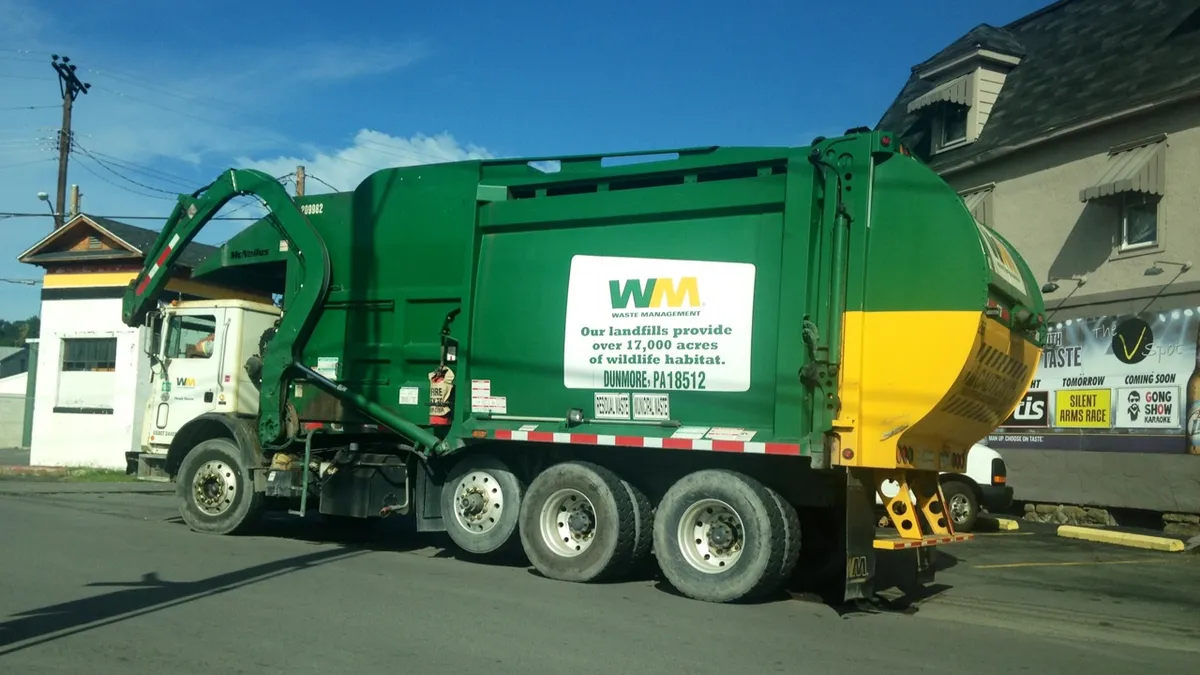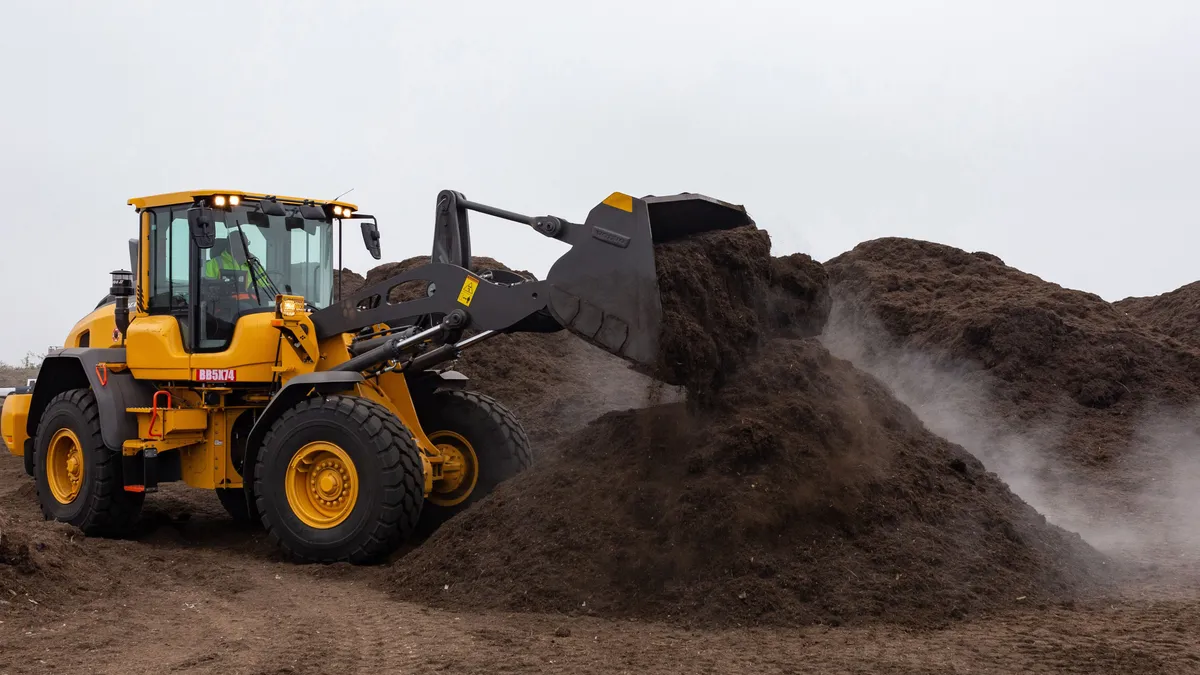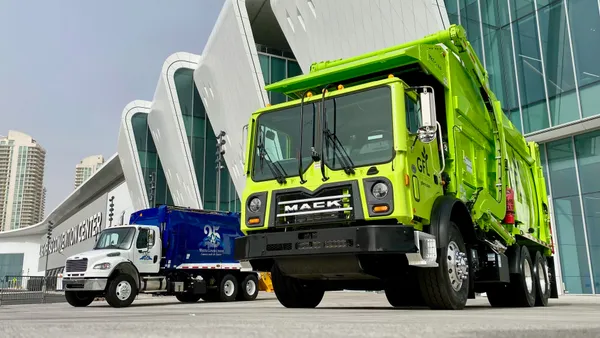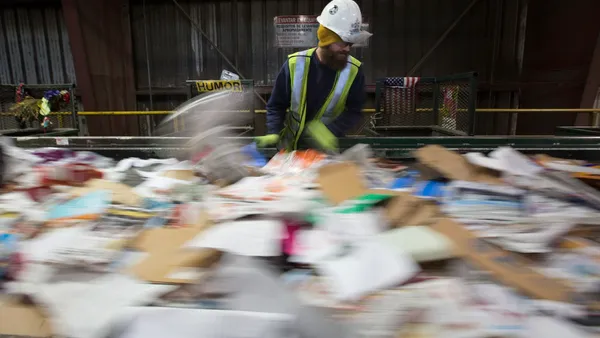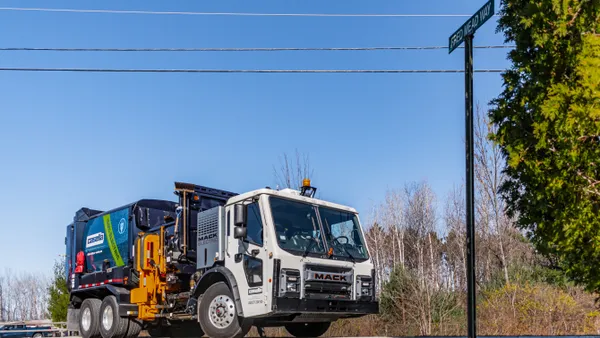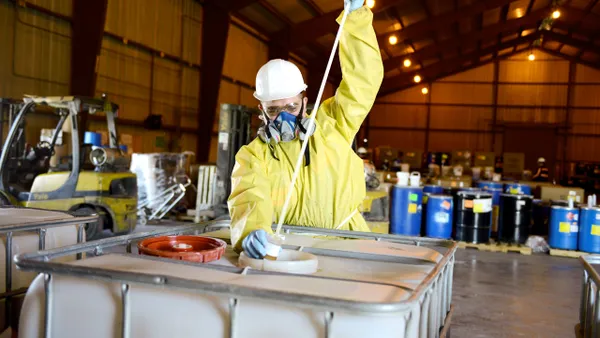Dive Brief:
- Waste Management's 2016 interactive sustainability report titled "Leading Change" marks a transition by the company to begin measuring sustainability success through greenhouse gas (GHG) emissions reduction instead of recycling tonnage. In 2015, the company recycled or composted 14 million tons of material that helped avoid 33.78 million metric tons of CO2 equivalent. This was down from 15.1 tons recycled and 35.9 MMT of CO2 equivalent avoided in 2014.
- In 2015, the company produced enough energy from waste — through landfill gas, solar, steam and other sources — to power 470,000 homes. This was equivalent to avoiding 1.04 MMT of CO2 equivalent. Energy generation was down by more than half from 2014 because the company divested from Wheelabrator Technologies.
- The company operated 5,100 natural gas vehicles in 2015, which it says is the largest fleet of its kind in North America. Since 2007, Waste Management has reduced its fleet emissions by 24% which is well ahead of its original goal of 15% by 2020.
Dive Insight:
Waste Management's shift toward this approach of GHG reduction over weight-based metrics follows a study the company was involved in over the summer and the sustainable materials management concept that has been encouraged by the EPA. Waste Management has closed more than 20% of its recycling facilities and taken other steps to make its operation more efficient in light of what former CEO David Steiner once called a "recycling recession."
New CEO Jim Fish re-emphasized this approach in a letter written for the annual report.
"In the past decade, there’s been a great deal of focus on often costly, sometimes abstract, and frequently difficult to achieve weight-based goals. And we’ve perhaps lost sight of the concrete environmental impacts that come from recycling," he wrote, going on to reference high diversion rate goals. "We like to think of ourselves as pragmatic optimists — looking over the life cycle of materials management to reduce waste, and ready to handle our customers’ wastes safely, as the process of finding alternatives evolves over time."
Using clean fuel vehicles, capturing energy from landfill gas and recycling more efficiently have all been industry priorities for years. However the shift to highlight these efforts in environmental terms for annual reports is more recent. Both Waste Management and Republic Services were included on the Carbon Disclosure Project's 2016 Climate A List.
Waste Management's annual report notes that industry operations account for a small portion of overall greenhouse gas emissions, but they're still sizeable. While the EPA's latest data showed that waste-related emissions were down in 2015, the industry was still responsible for an estimated 111.7 MMT of C02 equivalent and landfills were the largest contributors to that figure by far.



